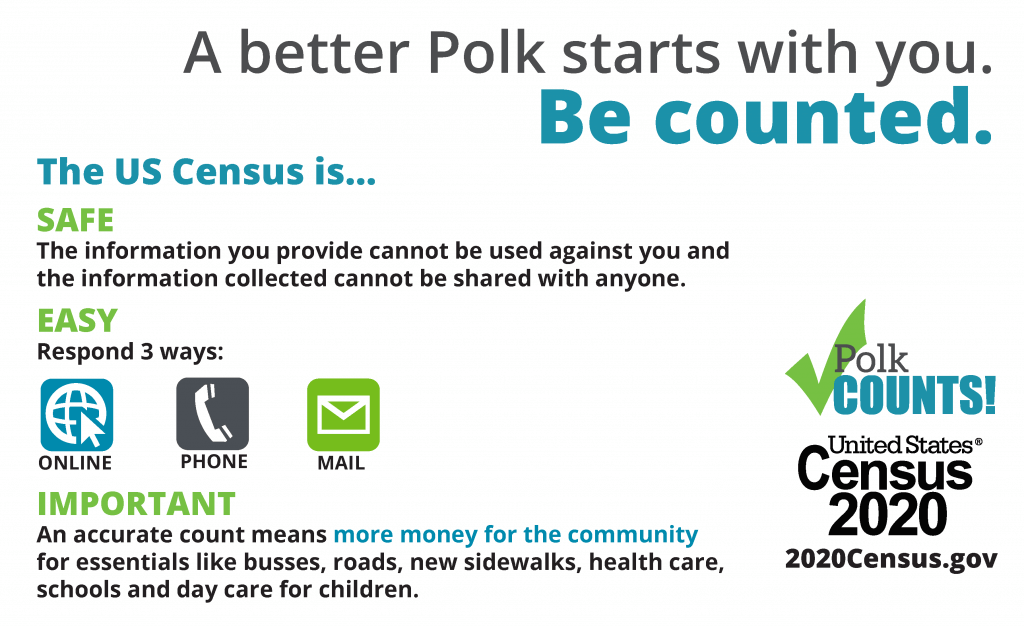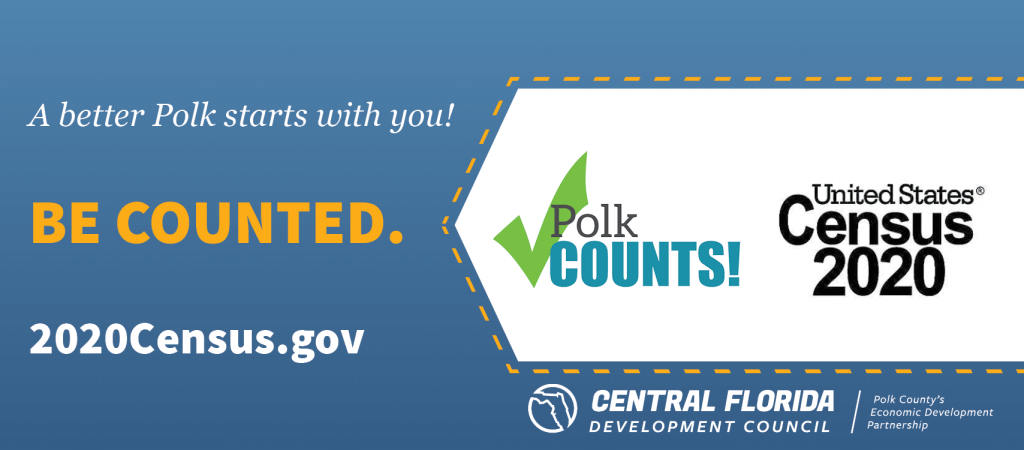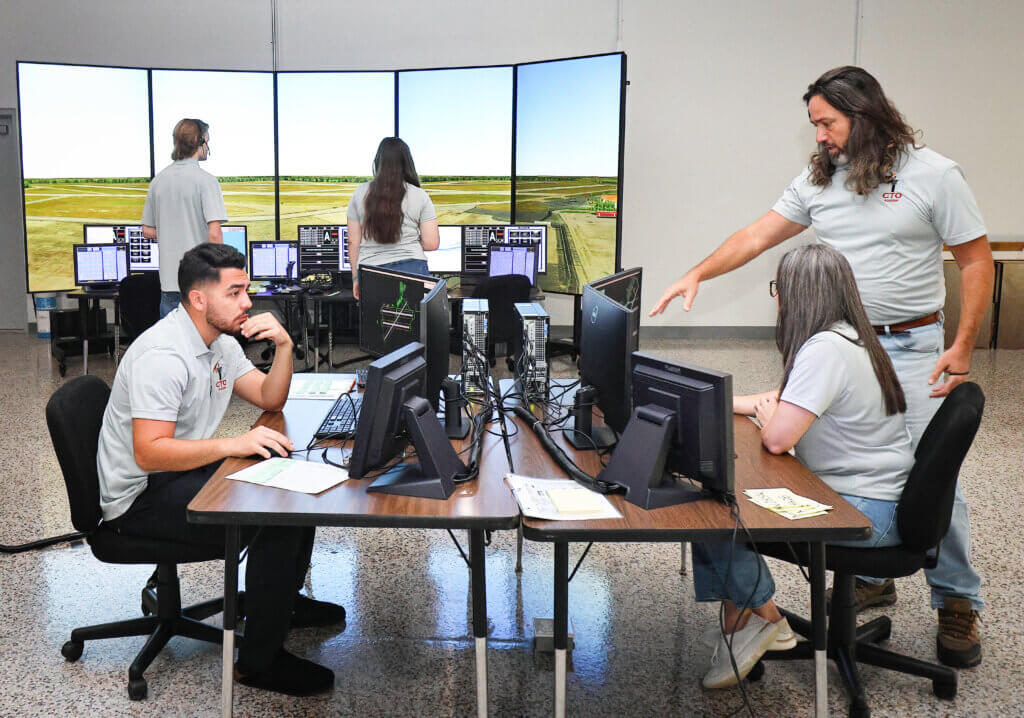Collecting and Using Census Data: Why It’s Important
The once-a-decade Census of every person living in the United States does more than just give us a glimpse at how much we’ve grown.
It also has economic impacts that range from how much money local and state governments get from the federal government to services offered to local residents, data that governments and businesses alike use to make critical decisions, and determines what states gain and lose members in the U.S. House of Representatives.

Florida Rep. Melony Bell said accurate counts affect how much funding the state and its counties and cities are eligible for from the federal government. That spending amounts to $900 billion spread across 325 programs ranging from opportunity zones to mass transit to services for the medically underserved.
Mianne Nelson, Polk County’s director of communications, said that funding impacts everyone.
“Everyone is affected by roads, whether it’s getting back and forth to work, a doctor, the grocery store. It affects our ability to help fund our hospitals and clinics that provide care for the underserved. It provides funding for education.”
Since the coronavirus forced the shutdown of schools, the school district has used such funding to help provide tools and technology to students, as well as food. “All of that is important,” Nelson said.
If the Census is inaccurate, we could lose funding we desperately need, and the population could be underserved,” Bell said.
Businesses can help, said Kim Long, executive director of Polk Vision, one of the local agencies working to ensure every person in Polk County is counted.
“The biggest thing an employer can do is make certain their employees are aware of the Census, and actively encourage workers to respond,” Long said. “The folks who are putting boxes together and managing equipment are probably not filling out the Census.”
Businesses Benefit
“Businesses can benefit by targeting the population most likely to benefit from the product or services they provide,” Bell said. “They use Census data to decide where to build factories, offices, stores, thereby creating jobs in those areas.”
For example, “An entrepreneur in Florida is weighing whether to open a new restaurant, a national chain headquartered in another state is making regional hiring plans to relocate in Florida, big-box stores like Publix are deciding how to stock shelves. All three businesses have one thing in common: They can use U.S. Census Bureau statistics to help guide their decisions.”
Nelson said the smaller format Publix on SR 540A in South Lakeland was built because the demographics at the time did not support building a larger one.
Andrew Reamer, a research scientist at George Washington University, said with governments, businesses, students, nonprofits and more using Census data, it “has a substantial positive effect on the vitality of the U.S. economy and the nation’s 6 million private firms. To put this number in perspective, 5.3 million U.S. firms (89 percent) have less than 20 employees. At the same time, the 20,000 firms with 500 or more employees account for nearly half of private employment. In other words, the availability of Census-derived data has a substantial impact on the profitability of millions of very small firms and of the very large firms that collectively employ tens of millions of workers.”
How Many Have Responded
So far, nearly 57 percent of residents in Polk County have responded online or by phone to the Census, trailing the state average of 58 percent and the national average of 60 percent. Of the cities in Polk County, Polk City has had the highest response rate at 62.3 percent, and Lake Hamilton has had the lowest at 16 percent.
Long said there are reasons why Lake Hamilton is behind, including being a more rural area. Polk Vision had many plans to work with community leaders in all parts of the county to hold events, go door to door and more — all of which were put on hold when the pandemic shut down much of the country. Communities that had invested in the process early on are leading the way now.
“We had to make some determinations as to where to focus our efforts based on population centers. We might know that a rural Census tract may be sluggish, but are there enough resident addresses to have an impact?” Long said.
Polk Vision has mailed postcards in English and Spanish to households in Haines City, Wahneta and the Bradley area, urging residents to go online or complete the Census by phone.
“We’ve done yard signs for the first time,” Long said. “We didn’t know it would take this type of engagement. We still are not able to gather in large numbers. That may ease in the later summer months. We’re still abiding by social distancing and are looking forward to the library system opening to some degree, which may mean computer access for our citizens.”
Residents also may hear spots on local radio “to make certain we are reaching populations with information to make sure they understand the value of the Census and that there is a helpline available.”
Fill out the Census and make sure you’re counted at 2020Census.gov




